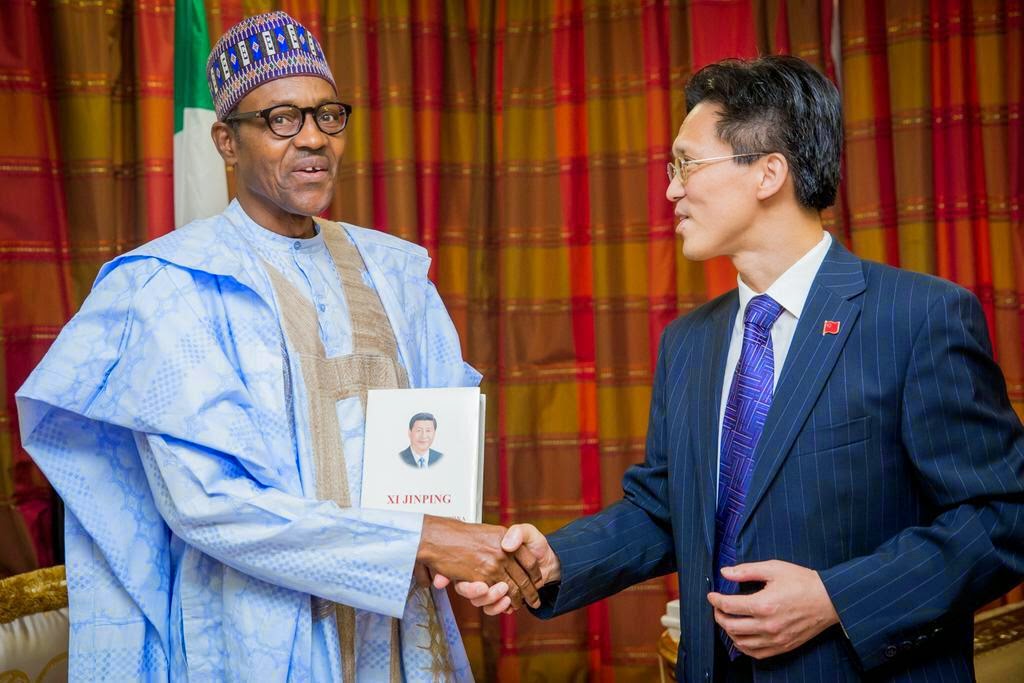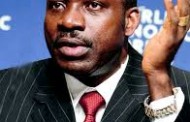President Buhari, some venerate and others vilify your person, but there is this seeming unanimous reference to you as baba. Of course, people need not to be linguists to know that “baba” is a Yoruba and Hausa word that loosely translates into “father” (or “daddy” in our more localised parlance). You joined the rather long list of past leaders that were accorded this prestigious title that demands a lot of fatherliness from even retired soldiers, obviously to remind you that the battered child named Nigeria urgently needs the firm but lovely strokes of a father. I suspect a lot of people basked, in their childhood days, the euphoria that greets the return of a mother from the market or that of a father from a trip (especially an obodo oyibo trip). Maybe this partly explains the mix of euphoria and scepticism in the land that greeted your return from the working visit to China.
Like hungry children eagerly awaiting their father’s return, we sat in front of our various information outlets to hear the good news of your return. Some rejoiced, others simply didn’t find enough reason to do same. Out came Garba Shehu, your articulate Senior Special Assistant on Media and Publicity, announcing the content of the goody bag you brought for us, all the way from China. Sealed infrastructure deals to the tune of over $6 Billion. That’s fantastic! The deals listed were such that would positively impact key sectors of the economy including power, solid minerals, agriculture, housing and rail transportation.
Baba, we have seen similar agreements in times past, we just hope that these ones would not exist only on paper like others. Seeing the agreed $1 billion that will be invested in the development of a greenfield expressway for Abuja-Ibadan-Lagos reminds us of a deal with this same China to build three greenfield refineries in Lagos, Kogi and Bayelsa that was signed six years ago. The sealed deal never came to fruition, when you go to those fields today, you will agree with Simon Kolawole that those fields are still green. Of course baba,you need not dub this particular deal bluefield, brownfield or even whitefield to suggest to us that things have changed, it’s just that that greenfield there evokes some memories, and they are not good ones. “History will not be repeated”, “things have changed”, “it is no longer business as usual” your people will tell us as they quickly draw out comparisons between sixteen years and eleven months. We hope so.
China. Oh Peoples’ Republic of China. Baba, thank goodness you know them to be very frugal business people who will do anything to reap maximum benefits from any deal they go into. You vividly understand the risks the deals you struck with China exposed us to; from of our markets being flooded with substandard “Chineese” products to our labour market being flooded with their expatriates. If it is this China you know, except if they have “changed”, they will attempt to export all the manpower needed for these projects. You are well aware of their infamous attribute of subjecting their employees to terrible working conditions. Wait a minute! Thank God you finished that report on China’s currency manipulation for economic purposes before you agreed a currency swap deal with them. Baba, you knew that the best thing to do is not to entirely avoid the Chinese and their gifts. You did not even attempt to “change” them because you knew it will be futile, you simply created backdoor clauses to those deals to slap them back into shape should they attempt to misbehave and devised strategies to technically defeat them should they go overboard. We appreciate that.
Sai baba, despite your blunt refusal of loan offers, you came back with a lot of goodies including the currency swap deal the Central Bank of Nigeria agreed in principle to enter into with People’s Bank of China. This deal, when effected will see China provide Nigeria a certain amount of Yuan for a definite period, at an agreed interest and exchange rates. The Central Bank will then formally allocate it to Commercial Banks and informally to Yuan vendors (black market) who will in turn make similar provisions to businessmen who can then clear their balance of trade with China in Yuan. Baba before you returned with this good news, the usual thing is that Nigerian businessmen who intend to transact with China will have to scramble for the US Dollar, meet their trade obligations with the dollar, and China then convert these Dollars to their local currency. In doing this, conversion, handling and other ancillary costs are incurred and there is no telling who bears these costs. When the swap deal gets implemented, we can directly convert our Naira to Yuan and eliminate the activity of the middleman – Dollar. Our trade volume with China is currently at about $14 billion per annum. This move will reduce the demand on the Dollar by 14 billion and ease off the pressure on Naira. Nice one!
Moreover, this deal has the potential of making Nigeria China’s clearing house for the whole of West Africa. Considering China’s trade volume with the region, this deal is sure a plus to our staggering economy. But all is not well yet baba especially when we look at your Government’s foreign exchange policy. Your Government under this same policy will attempt to “prioritise” Yuan the same way it does with dollar. This implies that she will decide who she will give her hard–earned Yuan to and who they will not give it to, apparently in an attempt to ensure that we don’t buy “toothpicks” with the money.
Baba, your import substitution policy is very apt and it should subsist, but the tool you have continued to use to sustain this policy is not the best. World over, the preeminent tool Governments use to regulate importation is taxation. Baba, you may have a need to be reminded that import duties (and waivers) are used to either discourage or encourage importation. In certain cases, commodities are literally taxed to death in order to inhibit or tactically prohibit their importation but, you approach this with a slightly different mentality. Given, it is easier to control importation by placing restrictions on access to foreign exchange than the usage of tax administration which requires a great deal of tactfulness but you have used this lazy man’s approach and we have seen what it got us into. This again reminds us that quick fixes have grave consequences. Baba, we know that you are in a haste to change Nigeria but quick fixes will change us in a manner that you yourself will find detestable.
Maybe you have not thought of it this way but what your Government is doing with foreign exchange is simply subsidizing it. Baba, your Government knows the real value of the Naira and the rate at which it is supposed to exchange with other currencies but she deliberately ignores in defiance, the obvious and subsidize it for a few. There is no need here to educate you on the biting effects this has on our economy but before you apportion the blame to the last sixteen years let me remind you that you can do things differently now than you did nine months ago. If you do things differently, you will definitely get a different result. Doing the same thing and expecting a different result was aptly defined. Please, allow the naira to exchange at its real value (or something close to that) as you continue to work tirelessly to bring back its lost glory.
Baba if you allow your hard earned Yuan to be handled the way the dollar is presently handled, then you have on your own volition mismanaged that goody bag from China and messed up your own frantic efforts to change our situation. Maybe I should be bold to tell you that the best way to change Nigeria is to change yourself. There are now several definitions of the change you propagate but we know the one you intend to bring about. Like Omojuwa rightly told you, intentions alone cannot fry plantain. We need to see this change and we need to see it now! Baba, welcome back from China, even as we know that you are already packing your bags for the next trip apparently to bring in more goodies. Thank you.
Yours sincerely,
Chima Christian.
This article by Chima, a civil rights activist, public policy analyst and a good governance advocate, was originally published in The Cable. He writes in from Nnewi, Anambra State. He can be contacted on Twitter via @ChimaCChristian













